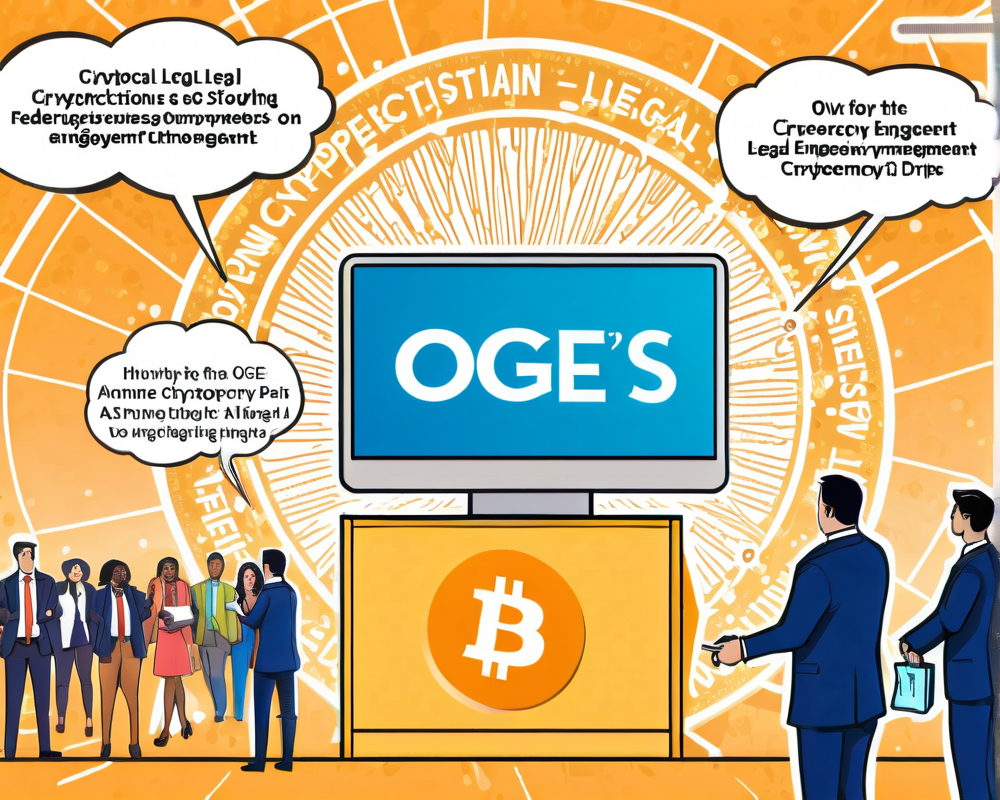Understanding the OGE’s Legal Advisory 22-04
On July 5, the United States Office of Government Ethics (OGE) dropped a bombshell with its Legal Advisory 22-04, stirring up quite the conversation amongst federal employees and crypto enthusiasts alike. The gist? If you’re a federal employee, owning any crypto or stablecoins means you’re barred from participating in related regulation and policymaking. Talk about financial FOMO!
A Glimpse Behind the Curtain
So what gives? The OGE tends to keep things under wraps, but thanks to a timely YouTube video featuring Senior Associate Counsel Christopher Swartz, we gleaned some insight. Swartz emphasized that the advisory is more about interpreting existing law, particularly the 1962 conflicts of interest statute, than making a definitive statement about digital assets. It seems their approach is a bit like a strict parent: no cookies (or crypto) before dinner!
Precedents and Preclusions
Swartz pointed out that there have been advisories in the past regarding crypto disclosures. The shift in stance is due to the increasing adoption among both the public and federal employees. He clarified that the law is intentionally broad—think of it as a no-sweatpants-during-work-hours kind of rule, with no de minimis exemptions to wear your favorite comfy pants.
- Federal employees can’t participate in matters where they have a financial interest.
- Agencies can apply for exemptions case-by-case.
- Established exemptions do exist for certain equity interests but not for cryptocurrency.
The Legal Landscape of Cryptocurrency
So why doesn’t crypto get a shout-out as a “publicly traded security”? According to the LA, the definition is much narrower than the broader securities definition. While some may play a game of semantics, experts like Aitan Goelman suggest leveraging the OGE’s opinion in larger discussions around the regulatory landscape of cryptocurrencies. This advisory doesn’t resonate in a vacuum; it holds a certain weight in the realm of regulatory ethics.
What Lies Ahead?
Now, before you pack your bags and consider pursuing a career elsewhere, Swartz has reassured that the OGE has protocols to assist new employees in navigating this landscape, but the question lingers: could we ever see a de minimis exemption for crypto holdings? According to Goelman, it merely requires a bit of “motivation” from the OGE to explore that path. Until then, it looks like our federal employees will have to responsibly pretend they don’t own any crypto stashes in their sock drawers.
Conclusion: The Future of Regulation
Just days later, the OGE issued another advisory on NFTs, requiring disclosure for any holdings worth over $1,000 held for investment, showing that crypto and regulatory boundaries are certainly evolving. There’s a thin line here as federal employees need to adapt while still spiraling through the crypto cosmos. Clearly, regulation remains a dance—a cha-cha between ethics and evolving technology!















+ There are no comments
Add yours